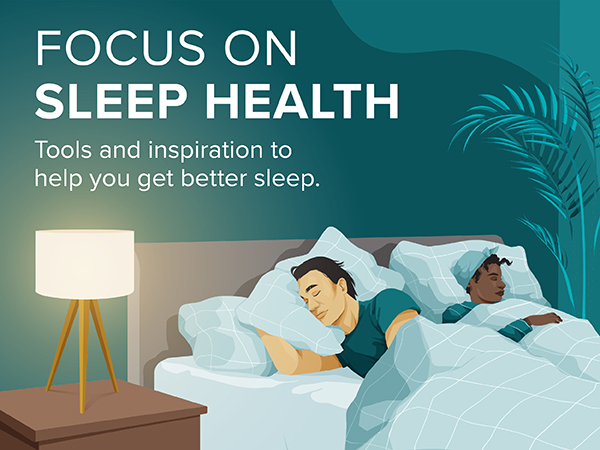We all know that a lack of sleep can make us feel distracted and off our mental game. But do you really think it affects more than just how well we perform on tasks involving memory? The truth is, without getting enough zzzs (-_-,), most people don’t realize what negative impacts poor cognitive performance has for them in everyday life!
While it is difficult to identify a single cognitive skill that isn’t affected by sleep, and compromised due to lack of thereof. The effects on our brain are so pervasive with every aspect we experience from mood changes all the way down into muscle movement — but more than anything else these Sub-Challenges will take place within yourself if you don’t get adequate rest!
Scientists have found that sleep-deprived people are worse at mental functions such as memory and decision making than those who get enough rest. The UCLA study looked into the effects of lack of slumber on brain cells, which showed they were not communicating properly with each other or carrying out their normal jobs due to being tired from staying up all night!
Sleep is the time when our brains go about their daily routine of renewing themselves. Without it, we may not be able to think as well or remember things for very long periods of time–which could make all those numbers in your spreadsheet obsolete before you even start working on them!
We all know that not getting enough sleep can make you moody, but did you also realize how it affects your brain? It turns out the answer is more than just mental activity. Other recent scientific discoveries have told us what happens when our bodies are kept awake for days on end – and they’re not pretty! Sleep Deprivation key points:
- Hitsapultes cells in one area of the body (such as muscle) into overdrive while simultaneously slowing down another region(s). This creates a sorta like “hijacked” response where excess energy goes towards something different from normally projected behaviour or function.
- Shifting your hormones can change the way you think, feel and act for hours or even days! The disrupts levels of hormonal agents that affect mood-related functions such as serotonin production; dopamine activity including receptivity to stimuli felt pleasure/unhappiness in our lives which may lead us towards addiction depending on its level of excesses cortisol – this one’s probably most familiar because it helps regulate blood sugar levels among other things.
- The human brain is an incredible organ that constantly updates itself with new information. It has the ability to learn and process so much at once, but it also needs some time for self-reflection in order not to become overwhelmed by all this data! The part of your mind known as “the homunculus”–which controls movement control systems like hands or feet–is independently activated when you’re sleeping… But what about other parts? The cerebral cortex (the area responsible for advanced thinking skills) stays active without interruption even while we snooze; And because these centers are always on guard against potential threats.
- A lack of sufficient amount of hours spent snoozing will activate genes that interfere with optimal activity in this area and create an environment for negative cognitive effects such as anxiety/depression among other things!
- You know that a lack of sleep makes you feel drowsy and unable to focus on tasks, right? Well, it turns out the effects are even worse than we thought. The National Sleep Foundation (NSF) reports chronic sleep debt as one way this happens; your attention constantly struggles with less deep restful slumber which leads to compromised abilities both mentally and physically.
- It’s easy to get lost in our own thoughts when sleep-deprived, but it turns out that’s not the only thing slowing us down. Sleep also affects how fast neural cells can process visual information and turn this into conscious thought–which means your brain may not have as much capacity for focusing on big or thoughtful tasks!
- Middle-aged people who experience insomnia are at risk for cognitive decline a decade later.
- Sleep deprivation impairs learning and the ability to create new memories. Poor sleep also diminishes your capacity to recall memories you’ve already made, whether you made them a month ago, or 10 years ago.
- Recent research has suggested that as many as 75% of people with ADHD are likely suffering from a chronic sleep disorder. This is due to the disruption in their circadian rhythms caused by something like late-night work or school hours, which force them into different schedules than everyone else around them and make it difficult (if not impossible) for these individuals to get enough rest each day while still trying to maintain an active social life at home too!
- Without enough sleep, you are more likely to make risky decisions. The prefrontal cortex—the area of your brain that handles planning and complex decision-making skills is damaged by lack-of-restraint in behaviour patterns while on
- REM sleep is a time when we dream most actively and vividly. This may be why REM-deprived individuals are more likely to experience creative thinking problems than those who get enough restful nights of zzz’s! It has been shown that people who don’t get enough rapid eye movement (REM) during their sleeping routines suffer from lower scores on tests for imagination or inspiration as opposed to those whose dreams contain ample amounts thereof; this trend continues even after controlling other cognitive functions.
- People who don’t get enough sleep are more likely to experience anger, hostility, and depression in the morning.
Want to learn more about how sleep affects cognitive ability? Sing up to our free World Sleep Sleep Day Webinar:
Standing At The Intersection of Sleep & Mental Health!
Snoring affecting your partner? Suffering from Obstructive Sleep Apnea, Insomnia, or do you suspect you´re suffering from another type of leep disorder? Take A Free Sleep Assessment.


